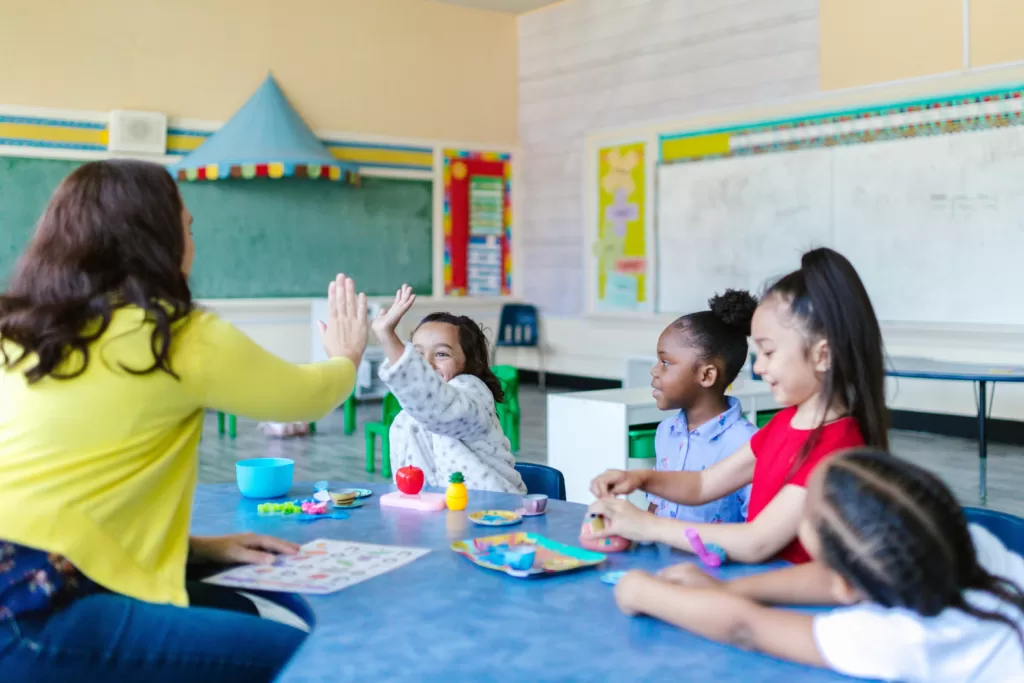In the dynamic landscape of education, people will always challenge and redefine traditional teaching methods. One approach that has gained significant traction in recent years is game-based learning. It is an innovative approach that combines the joy of play with the effectiveness of learning. It also provides an alternative to students who are struggling with the traditional methods.
Parents who are new to game-based learning may have doubts regarding its effectiveness. This is due to the persisting misconception that video games provide minimal educational value. However, game-based learning have been empirically proven to be one of the most effective teaching techniques and have been adopted by many teachers globally. Let’s learn about the basics of game-based learning and how a child can benefit from this revolutionary teaching method.
What is Game-Based Learning?
Game-based learning is an educational approach that uses analog and digital games to teach children. It creates an interactive learning environment where children actively participate in their own learning. Games act as a means to impart knowledge and encourage critical thinking, problem-solving, and decision-making skills, all the while having fun and gradually associating fun with learning.
Unlike the traditional classroom experience, which centers around lectures and rote memorization, learning through games lets children explore, experiment, and make mistakes in a safe, enjoyable environment. Oftentimes, games incorporate challenges and rewards to master concepts while having fun. These games can range from simple board games to sophisticated digital simulations, making learning accessible to all types of learners.
Why Game-Based Learning is Important for Kids
Game-based learning offers several advantages that make it particularly effective for children’s education. Firstly, games tap into children’s natural curiosity and eagerness to explore, creating a positive learning experience that keeps them engaged for extended periods of time. The element of play removes the fear of failure, making children more willing to take risks and learn from their mistakes.
Furthermore, game-based learning enables personalized learning experiences. Since teachers can tailor games to individual learning levels and styles, each child can progress at their own pace. This eliminates the feelings of inadequacy or boredom that can happen in a conventional classroom setting.
Lastly, games provide instant feedback, allowing kids to assess their performance and identify areas for improvement. This instant feedback loop motivates continuous learning, as children strive to achieve better results and master challenging concepts.
The 6 Key Benefits of Game-based Learning
Enhanced Learning Outcomes
Game-based learning significantly enhances learning outcomes by activating various cognitive abilities. Children progressively gain critical thinking and problem-solving skills as they come up with ways to overcome challenges within these interactive learning games. These invaluable skills go beyond the gaming context and are readily transferable as children approach academic problems and daily challenges with greater confidence and creativity.
Increased Engagement
One of the most notable benefits of game-based learning is the increased engagement it nurtures among children. Traditional methods often struggle to catch and keep a child’s attention; students eventually lose interest and struggle to stay focused. However, games naturally grab children’s curiosity and enthusiasm, giving an enjoyable learning experience. The interactive nature of games keeps children actively involved, enabling deeper understanding and knowledge retention.
Moreover, learning through games often relies on a variety of senses including sight and sound. These multi-sensory interactive elements cater to different learning styles and support a diverse group of learners. Overall, the increased engagement not only accelerates learning and comprehension but also instills a love for learning, making children hungry to learn new topics and expanding the boundaries of their knowledge.
Collaboration and Social Skills
Many game-based learning experiences require collaboration and teamwork, encouraging children to work together towards common goals. Through respectful debating, friendly sharing of ideas, collaborative decision-making, and problem-solving in a playful context, children learn critical social skills such as effective communication, cooperation, and empathy.
Collaborative gaming environments create a safe space for kids to practice resolving conflicts, respecting others’ opinions, and valuing teamwork. A solid foundation in these core social skills will set your child up for success in any social environment including school, career, and even their personal relationships.
Retention and Transfer of Knowledge
Game-based learning promotes deeper knowledge retention through the use of immediate feedback loops. Children receive instant feedback on their performance, helping them assess their understanding and identify areas for improvement. The feedback loop reinforces learning, as children motivate themselves to correct mistakes and refine their knowledge.
Furthermore, applying learned concepts in different gaming situations improves the transferability and malleability of the knowledge. In other words, children grasp a deeper and more meaningful understanding of the material, and thus, they can apply the said skills and knowledge in various situations in and out of the classroom.
Intrinsic Motivation
Intrinsic motivation, or one’s inner drive to pursue an activity even without the presence of an external reward, is a crucial factor in the sustainability of your child’s educational and personal growth. Game-based learning taps into intrinsic motivation as children patiently and systematically progress from craving rewards to striving for that internal sense of accomplishment.
In the game-based learning model, children at younger ages start off with activities that center around external rewards in order to motivate them towards their learning goals. As children progress through different levels, complete tasks, and overcome obstacles, they go on to experience a great sense of pride in their achievement and the effort it took to reach said goal.
Eventually, this sense of accomplishment proves to be such a powerful positive learning attitude that children pursue these game-based learning activities for the pure joy of the activity. This internal motivation becomes a huge driving force, pushing children to take ownership of their learning journey, seek continuous improvement, and accept challenges enthusiastically.
Emotional Well-being
Game-based learning fosters stress-free learning environments. Traditional educational settings create anxiety and fear of failure in some kids, detrimentally hindering their learning experience. In contrast, games help children learn at their own pace and make mistakes without the fear of judgment or poor grades.
Children progressively build self-confidence and a sense of competence as they experience greater success and overcome harder challenges within the games. The positive emotional environment not only enhances learning, but also contributes to children’s overall happiness and mental well-being, creating a healthy mindset that sets your child up for success beyond the classroom.
Conclusion
Game-based learning is unquestionably challenging and changing the current education system. Its interactive and immersive nature keeps children engaged and instills a strong foundation of crucial skills and knowledge that one might find difficult to learn in a traditional classroom. By tapping into children’s natural curiosity and adaptability, learning through games offers personalized experiences that cater to individual learning styles.
Are you looking for a more engaging and effective way to educate your child? Try out game-based learning and book a first-time lesson (FTL) for your kids today! Experience the joy of play and witness the transformation in your child’s learning journey. Give your child the gift of interactive and immersive education that fosters a love for learning, nurtures an unbreakable spirit of curiosity and exploration, and prepares them for a bright, successful future.






